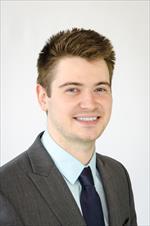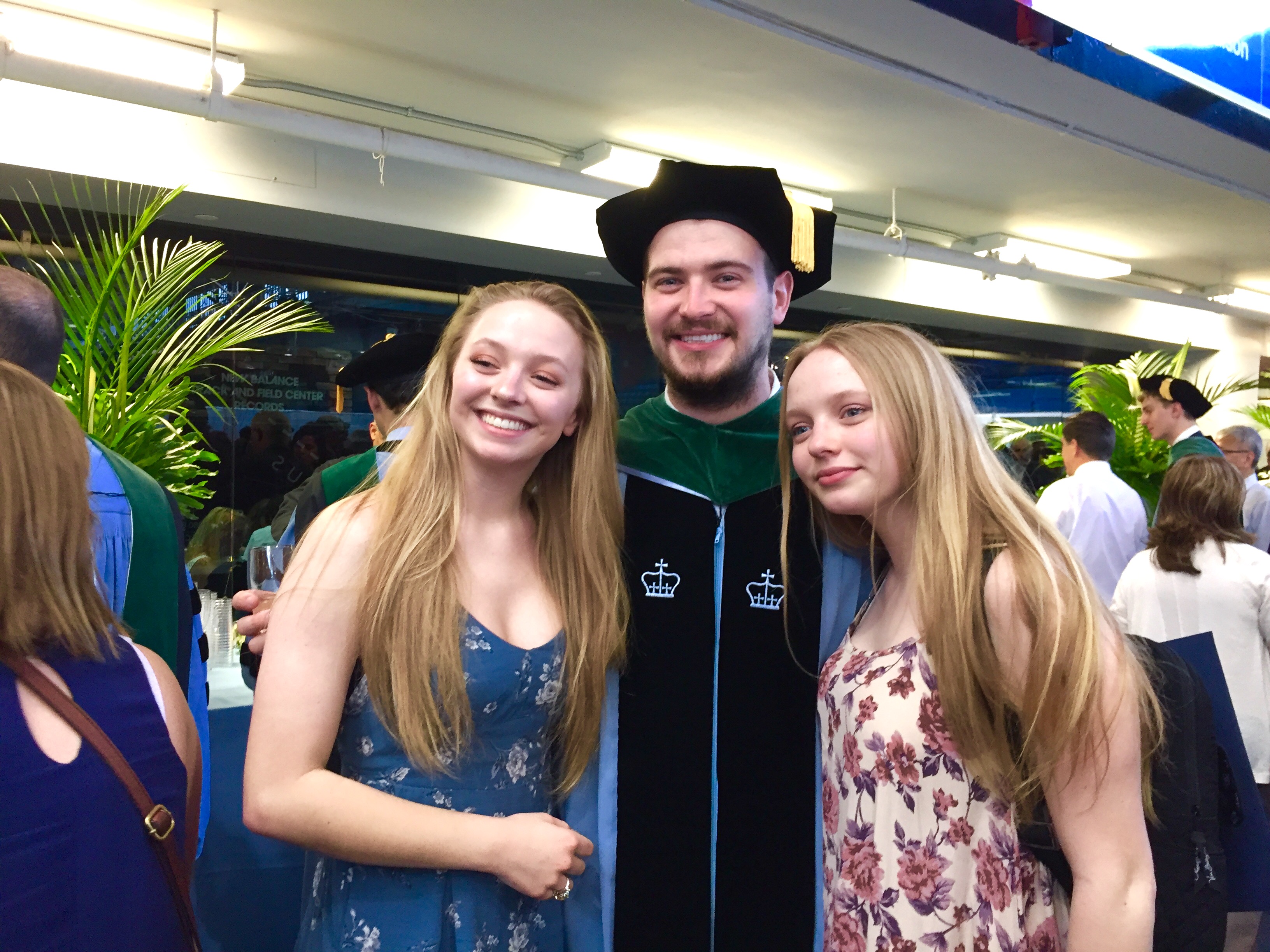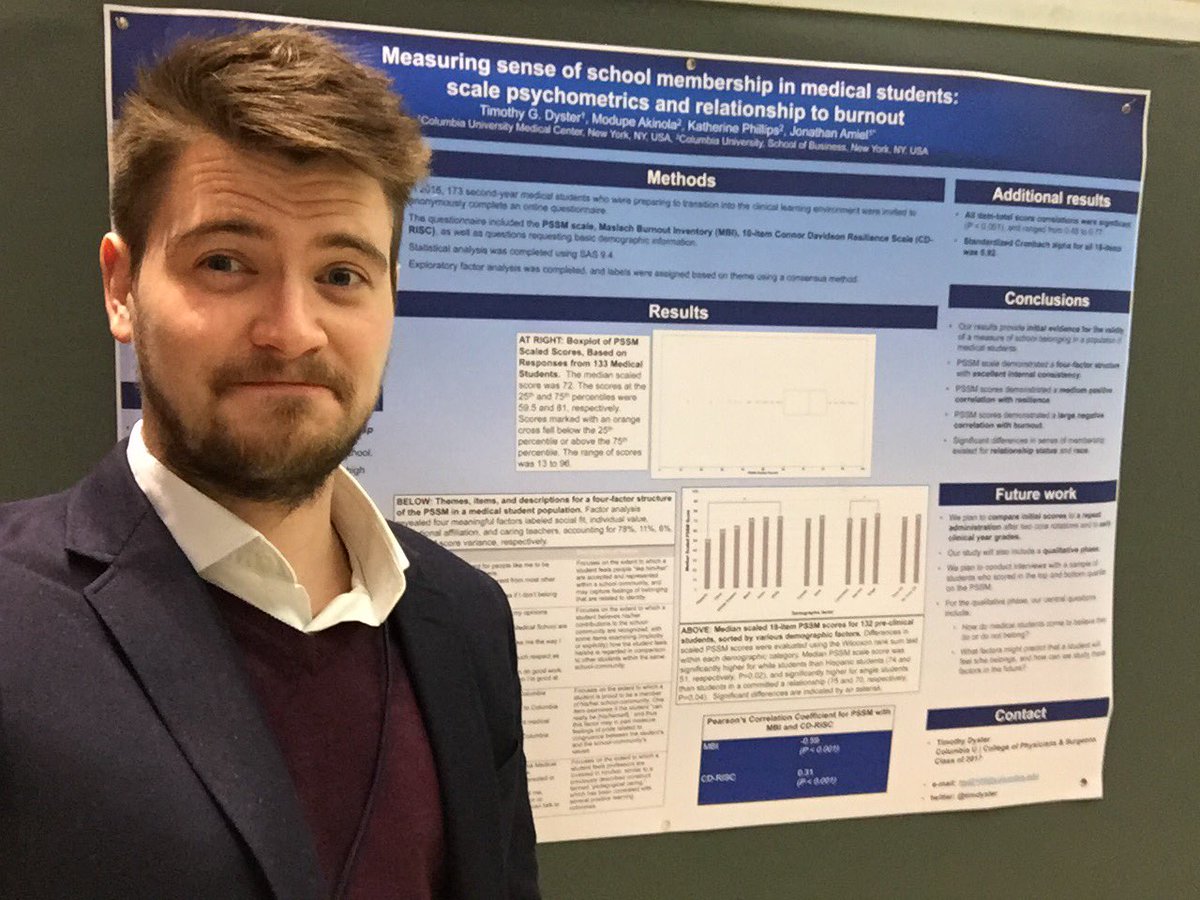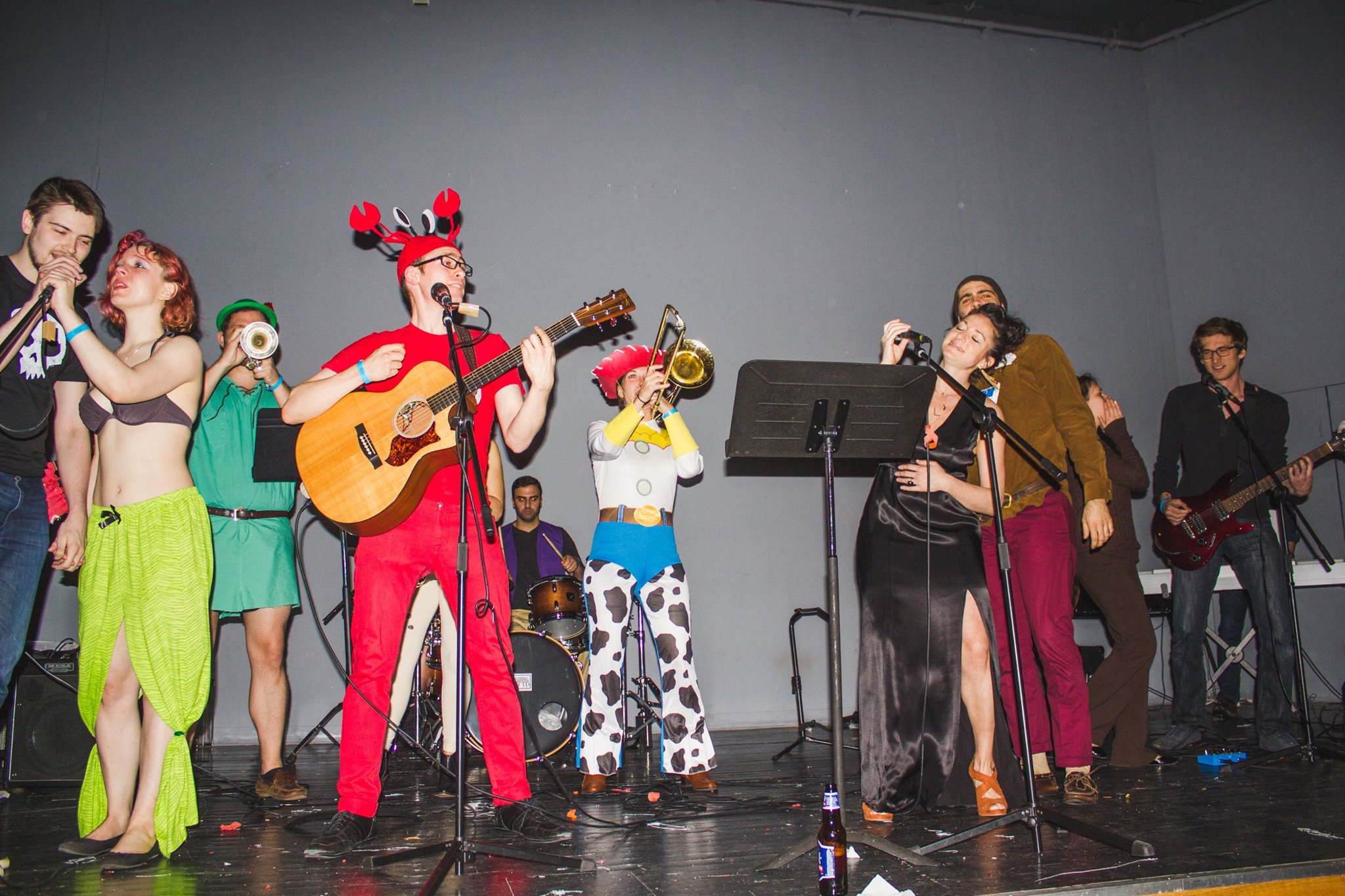Resident Interview: Timothy Dyster, MD
A Conversation with Timothy Dyster, 2nd Year Resident in the Dept. of Medicine
Where were you born and raised? Recollect a favorite childhood memory of being with your family.


I am from Lewiston, a small town near Niagara Falls in New York. Both of my parents are from very large families: my dad was one of ten children and my mom was one of six. They had four and I am the eldest and only male of three sisters; my youngest siblings are twin sisters who are a decade behind me. My dad is a radiologist and my mom is a social worker.
A favorite memory is that my family has a cabin in the wilderness in Ontario and once a year, we would have summertime family reunions, over two successive weeks, with both sides of the family and that was always crazy and fun.
As someone from the East Coast, how long did it take you to adjust? What about living in California did you take to immediately?
I lived in New York City for five years before coming to California, and the pace here was so different, even the way people walk—it’s relaxed and slower—and I’m still adjusting to that slower pace. My heritage is Irish, English, Scottish, and some German, so I do well in the chronic spring weather of San Francisco. The intellectual culture of Medicine is different, too, as hierarchy feels less formal here and people who are in the early stages of training are more forthcoming about their thoughts and questions. It would be too facile to say that one way is better or worse, but I do think that patient care ultimately benefits from a willingness to find the best idea in the room, which may or may not be that of the highest-ranking person. The team structure and the way we think about hierarchy in the workplace – and work/life integration – is much different here, and my experience is that more attention is paid to the ways in which life plays into work and work plays into life throughout the various stages of medical training.
In three words, describe yourself and what I should know before we proceed any further.
Deliberate. Creative. And, hopefully, humble.
Left or right brain – which rules?
I think I am equal-brained. In college, I did a lot of theater and, at the same time, was writing a thesis on evolutionary biology. I can remember reading about deductive reasoning and script analysis, and finding how they were similar.
What is professional identify formation? How did this area of study pique your interest?

Professional identity formation is a really cool construct that is gaining traction in the medical education literature. It essentially looks at the process of medical training and proposes its overall goal is to take someone who does not identify as a medical doctor through the process of becoming a person who does identify as a physician. Through this lens, training takes on new dimensions as a cultural, social, and developmental process, in addition to the more traditional three-part framework of [it teaching] knowledge, skills and attitudes.
What was missing with the original [three-part framework] is the fact that in training, one is adopting a new identity, renegotiating who you are becoming. In becoming physicians, we may sometimes have to compromise other identities, such as partner or child. I’ve found this model useful in training when my professional responsibilities and identity conflicts with my personal desires and identity. I think that being able to name that conflict empowers you to process it and accept your own reactions to it.
How many tools do you use to express yourself? Which is the most effective? Which is the most personally meaningful or satisfying?

I was trained as a tenor and sang classical pieces in college, but now I learn pop songs for pleasure. I use social media a little but prefer to express myself by producing material products, like when I got involved with a small video we did last year as an intern class.
I like using creative mediums to express myself and communicate my ideas to others. I used to, and still do, write a lot. Writing in particular helps me clarify what I think about things. In some ways, any creative endeavor for me is driven by a desire to organize my own thinking and articulate my own opinions and feelings to myself – sharing those ideas with others is more like a fringe benefit.
What other profession(s) might you have considered other than Medicine? What interests do you cultivate in whatever free time you have?
If I hadn’t chosen Medicine, I would have pursued Architecture. It goes back to what I said earlier about the left/right brain balance: architecture is not just about creativity, but also about understanding materials, their properties, and complex geometry, and then using that knowledge to impact the way a structure generates narrative, by guiding how people behave within or around the building itself.
Hippocrates said, “Life is short, and Art is long.” As a young physician, what do these words mean to you and how do you accept the challenge?
One of the fantastically exciting and humbling things about being a physician is knowing that there is already more knowledge than is knowable and that knowledge base continues to grow exponentially. It highlights the importance of knowing limits. Now, as a resident, knowing personal limits is what I value the most in colleagues and in people I practice under. The people I respect are not afraid to admit the limits of their knowledge—that they may not know an answer, but understand that there are more questions to ask.
It’s exciting to think that I can have a career that spans forty years and continue to learn something every day at work. My grandfather, who is in his 90s, was a family practitioner and he would always tell me, “The day I come to work and do not learn something is the day I should retire.”
Thank you, Timothy.